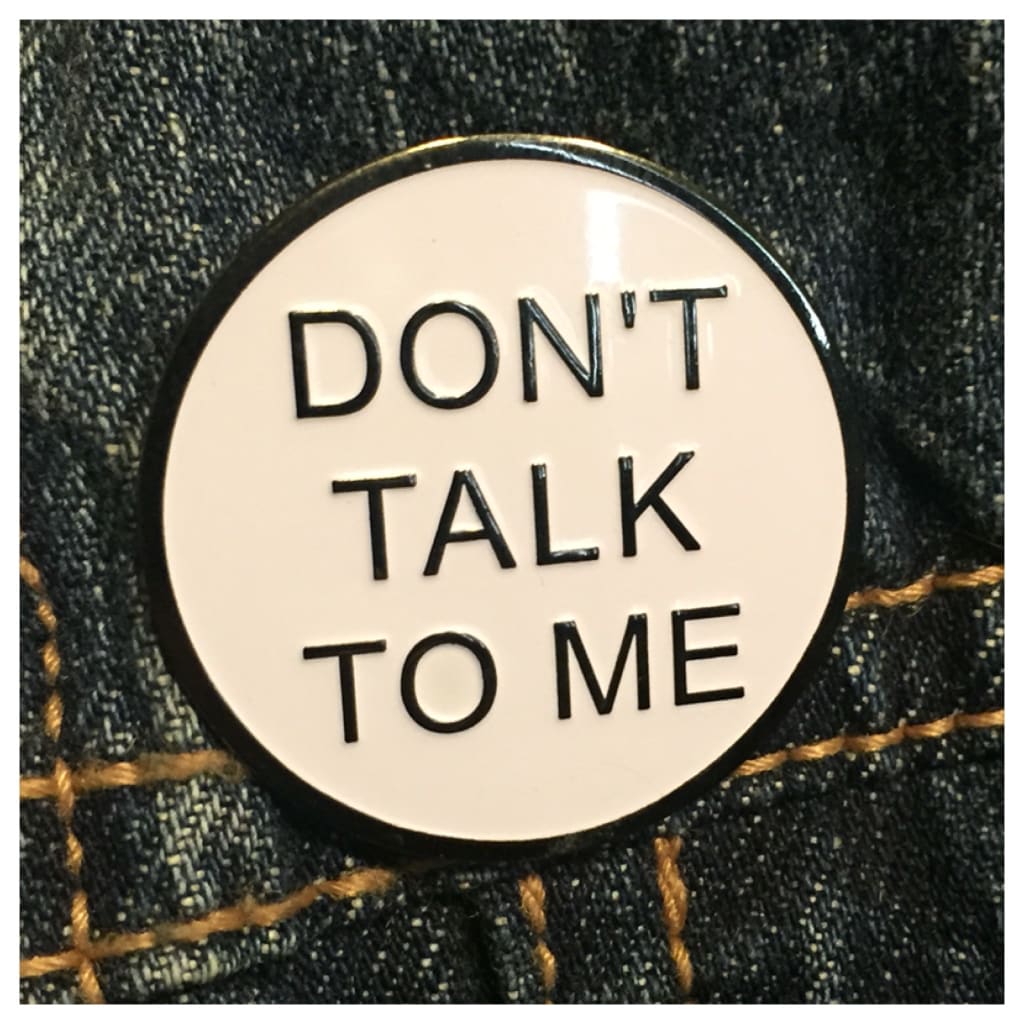Reintegrating After a Long Depressive Episode
The Steps I'm Taking to Recover from Months of Physical and Emotional Isolation

If you suffer from severe anxiety and/or depression, the term "isolation" may have a different connotation for you than most. If you understand what I'm talking about, then this is the article may interest you.
As someone who has been seeing therapists and psychiatrists consistently since middle school, (I'm going on 20 now) I've come to know the term quite intimately. Over the years as my mental illness grew and evolved, I found myself presenting many different symptoms and subconsciously using many different strategies to cope as new and unfamiliar symptoms reared their heads. Some of these strategies have helped me to move past unwanted behaviors and worries. Others, though, only helped to exacerbate issues that I thought I had in check. The most prominent of these "coping" behaviors is isolation.
Isolating is a tricky thing to deal with, because in small doses it can be a very helpful strategy to keep stress in check. I'm not talking about taking a few sick days from work, or canceling a few plans to stay home and take care of yourself, though. Those situations can aid many people, mentally ill or not, in the eternal battle against daily stress. It can be good for you to take a step back and just spend some time to just relax both body and mind. For some people suffering from forms of anxiety disorders or chronic depression, though, it's very easy to spiral from "self care" into a very debilitating state that feels impossible to break out of. Skipping one day of work can quickly grow to five, ten, etc. Missing a class or two can turn into a failing grade. Canceling a plan with friends can turn into ignoring texts and losing contact with people you love. It can grow and grow until it seems entirely irreversible, which only leads to discouragement, and subsequently further isolation.
My most intense and long lasting episodes have stemmed from this. In the end of my freshman year of high school, I had to essentially take "hospital schooling" because I was missing class for weeks upon weeks. But I wasn't cutting classes like my teachers thought—I simply couldn't will myself to get out of bed every morning. Just before my junior year, the school suggested I just move to an online school, because I clearly wasn't recovering and they couldn't waste resources on me. I spent over half of my time in high school in my bed. I felt like a failure. I'd gone from from being top of my class, to barely keeping up average grades. My friends stopped texting me because I hardly replied. I was alone, severely depressed, and afraid that I was ruining my whole future.
With a lot of help and a strong dose of antidepressants, I was able to go back for my senior year. I was sad that I'd missed out on things that my friends got to do, but I was beyond proud of myself for graduating along side my friends. I'd accomplished something that a year earlier I'd thought impossible. I told myself that if I ever began falling like that again, I'd catch myself before it got so bad. I mean, I knew the pattern now, so how hard could that be? Just don't isolate. Easy as that. Fast forward a year, though, and I suddenly found myself falling into old habits.
I crashed my car, I dropped out of college, my friends were cutting me off, and I was broke. The worst part is that I knew why. I recognized the pattern. I was spiraling, just like I had back in high school. It started with a few cut classes here and there, a few canceled nights with my friends; and suddenly I found myself back in my bed, unable to leave the house alone for fear that I might break down into an anxiety attack in public. It was just like high school, only this time I didn't have a net to fall back on. I was an adult now. I was still living with my parents and they were still just as supportive, (if not more so this time)... But suddenly my recovery was solely my responsibility, and to be honest, I didn't feel mature enough to handle it on my own; so I didn't.
Fast forward six more months and here I am; still alone, still depressed, and still disappointed with myself. I'd hit my lowest point and I felt hopeless for a long time, but I had to remind myself that I've done it once before, so it's possible. I'm making efforts now, albeit small ones. I've been texting my friends; not every day, but on a pretty regular basis. I've been getting out of the house on good days. Sometimes I'll run errands with my mom, just to go out and interact with other humans face-to-face. It doesn't seem like much, but to someone like me who struggles every single day, small things like that are the only way to even begin to recover.
~~~
It's important to remember that recovery doesn't happen the second you decide to recover. It's an uphill battle; and as tempting as it is to run up it head on, that can make you much more likely to slip and end up right back where you started. Baby steps are nothing to be ashamed of. Being cautious isn't bad. Falling down doesn't mean you've failed. You've got to pace yourself, and as you gain more footing, your momentum will naturally pick up. These experiences have taught me that I don't have to be perfect, as long as I'm putting my best foot forward and giving life my best effort.
If you're struggling through something like this, my advice would be to put pride aside, admit that you've made mistakes and that you're struggling right now, don't be afraid to ask for help, and understand that it's okay to be in a low place, but you are the only one who's going to get yourself out. It doesn't matter how much support you have. You'll never recover if you don't try, so take baby steps. Celebrate tiny accomplishments. Be proud of yourself on good days, and don't beat yourself up over the bad ones, because mental illness isn't black and white. Even if you fall down, you always have the choice to get back up and keep fighting. It might seem pointless now, but in six months you'll be thanking yourself.






Comments
There are no comments for this story
Be the first to respond and start the conversation.